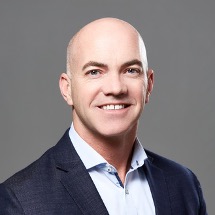July 6, 2022
 The Canadian Society for Exercise Physiology (CSEP) and the University of New Brunswick and Université de Moncton are pleased to announce the return of CSEP’s in-person annual conference! There is a great line-up of Symposia to look forward to and we’ve interviewed each presenter to give you a preview of what to expect and how attending will benefit you.
The Canadian Society for Exercise Physiology (CSEP) and the University of New Brunswick and Université de Moncton are pleased to announce the return of CSEP’s in-person annual conference! There is a great line-up of Symposia to look forward to and we’ve interviewed each presenter to give you a preview of what to expect and how attending will benefit you.
In this feature we talk to Martin Gibala, an integrative physiologist who studies the mechanistic basis of exercise responses in humans. Martin is the Chair of “Symposium 10: Interval Training In Health And Disease: New Insights” at CSEP 2022. Kevin’s co-presenters include Martin MacInnis, Maureen MacDonald and Jennifer Reed.
What are you most looking forward to about an in-person conference this year?
I have traveled to two international meetings this year and the experiences have reminded me of the value of engaging in person. I suspect this is not a unique sentiment but I am looking forward to the opportunity to interact directly with colleagues and trainees in ways that you simply cannot replicate online.
What can CSEP certified members learn from attending the symposium you’re chairing that they can apply to their practice?
The symposium will consider the latest evidence on interval training responses from a basic and applied perspective. CSEP certified members will gain an appreciation for the mechanistic basis of responses and the application of the method in various settings, with a particular focus on women’s health and individuals with cardiovascular disease.
What do you think makes this topic and the content unique to the CSEP conference?
The topic of interval training is certainly not unique but the content will address the challenge of translating basic science research on physiological responses into appropriate exercise prescriptions for individuals of varying age, fitness and health status, including those with chronic disease. The symposium will attempt to bridge the gap from the laboratory to the clinic or rehabilitation or fitness centre.
What advice or recommendations would you offer any early career researchers / young investigators or students who have an interest in this field?
My advice is to read the relevant literature, including “classic” work, and try to identify novel questions or unresolved issues that can be addressed using the methods and approaches that are available to you. Seek to optimize your research design as much as possible and strive for best practices in how to construct, conduct, analyze and report an exercise intervention study.





